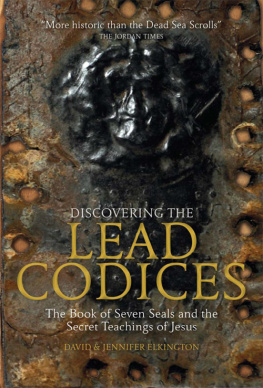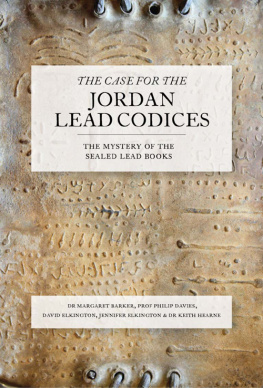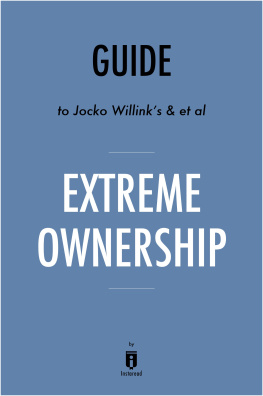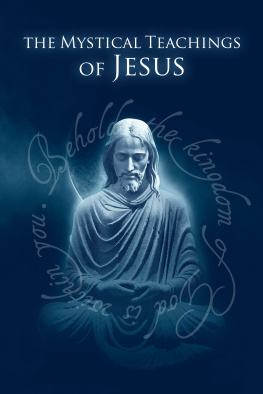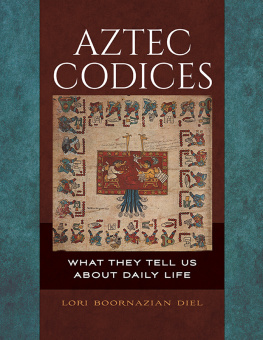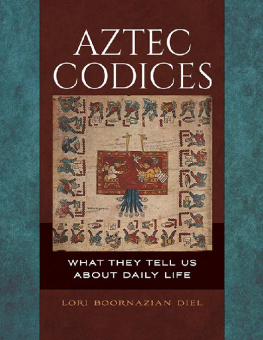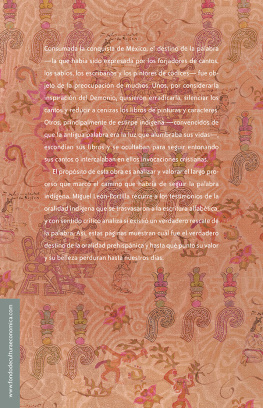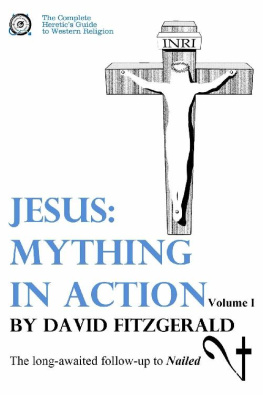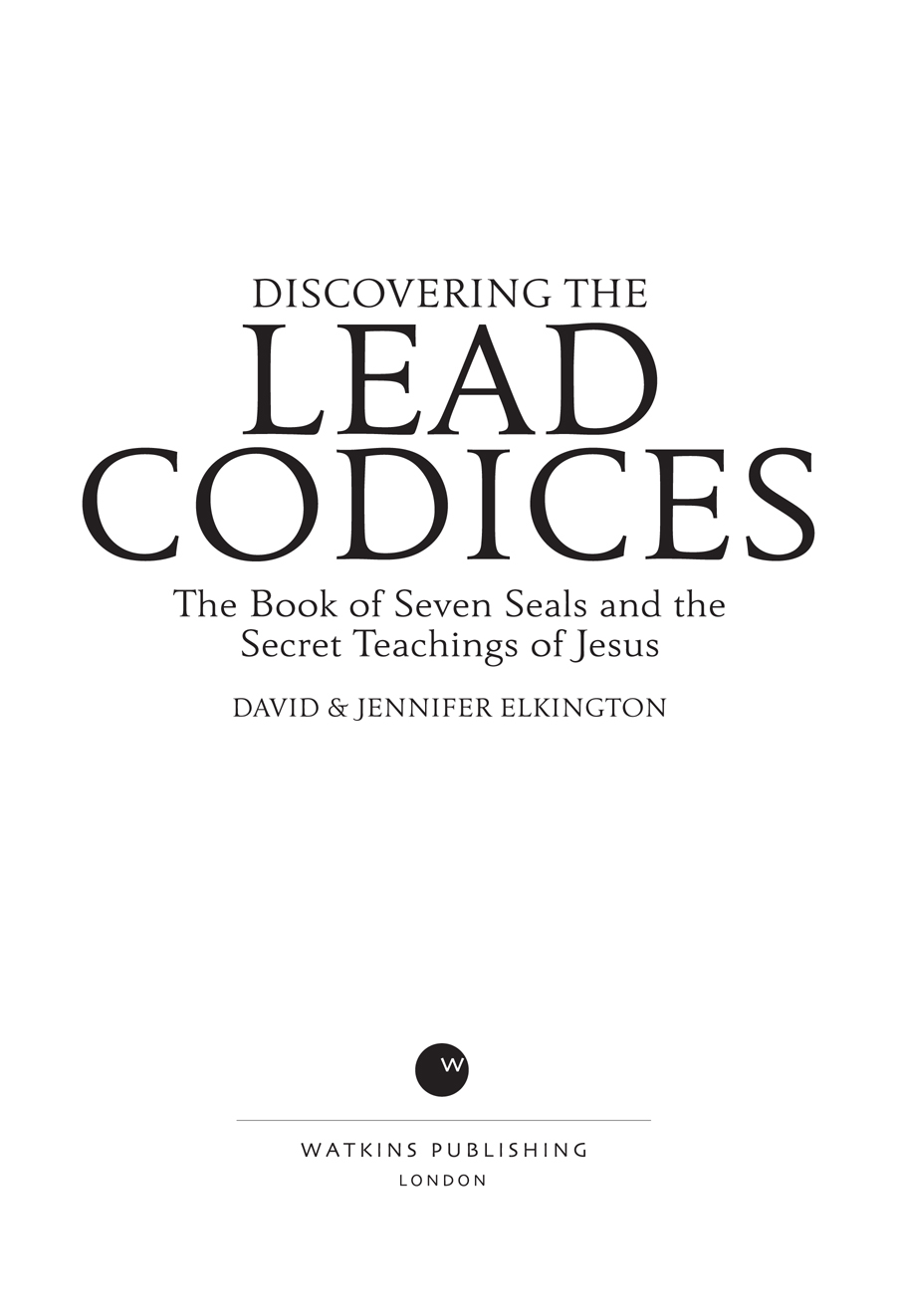David Elkington is the author of In the Name of the Gods, the acclaimed academic thesis on the resonance and acoustical origins of religion. David is primarily an Egyptologist, specializing in Egypto-Palestinian links that have inevitably drawn him into the field of Biblical studies.
Jennifer Elkington was born in Key West, Florida, spending her formative years in Germany before reading Art and European History at the American University in Paris. Jennifer stayed on in Paris working in the arts before relocating to London in 1996, where she worked as a literary publicist.
for Dorothy,
Alex and Eloise
If in that Syrian garden, ages slain,
You sleep, and know not you are dead in vain,
Nor even in dreams behold how dark and bright
Ascends in smoke and fire by day and night
The hate you died to quench and could but fan,
Sleep well and see no morning, son of man.
But if, the grave rent and the stone rolled by,
At the right hand of majesty on high
You sit, and sitting so remember yet
Your tears, your agony and bloody sweat,
Your cross and passion and the life you gave,
Bow hither out of heaven and see and save.
Easter Hymn, A E Housman
Whoever loves instruction loves knowledge, but he who hates reproof is ignorant. A good person draws out the will of the Lord in others, but a person of wicked intention condemns.
Proverbs 12:12
Contents
Authors Note
The Biblical quotations in this book are from: the Orthodox Study Bible, the King James Version (KJV), the Jerusalem Bible and the Septuagint (LXX). I have retained the KJV on occasions for its poetry and rhythm of language.
The controversial nature of the discovery has made it necessary not to mention the names and institutions of a number of the eminent scholars involved. Certain character names have been changed.
Owing to the practical considerations of modern publishing, we have had to keep text and footnotes within a strict limit. The full text of endnotes, plus appendices and a glossary, are available online at www.sevensealedbook.com
Many of the telephone and voicemail messages quoted or referred to in this text have been recorded and transcribed by the British police.
The authors would like it to be known that although we have consulted a number of scholars throughout the writing of this book, and are thankful for their efforts on our behalf, our conclusions are very much our own.
Although this book results from a collaboration of two authors, David composed the historical text and Jennifer the contemporary narrative: this is presented as one voice.
Whilst every effort has been made to trace the copyright holders of certain texts in order to seek their permission, this has not always proved successful. Any omissions will be corrected in future editions.
Overture
We have been privileged to be a part of a discovery that was made a few years ago, of a series of ancient books, or codices, each of which is made of lead. In these books we have a series of images and symbols, and enough information to determine that these documents are deeply challenging to existing ideas of Christianity and its origins. One particular image is profoundly moving: it shows Jesus as the King of Israel. The existence of such an image might well have been regarded as highly blasphemous in the religious climate of the 1st century, which prohibited figurative depictions of the divine. What emerges from a first glimpse of the codices is that, since they are sealed, they were meant to be seen by certain eyes only the eyes of those who would understand them, who shared the knowledge of the ineffable: knowledge of the interior of the Temple of Jerusalem of God. The existence of these images challenges assumptions about the age and theology of Christianity from its earliest period.
What these books reveal is the beating heart of early Christianity for they are the very secrets that Jesus alludes to in the Gospels. Secrets that St John, friend and Apostle of Christ, writes of in Revelation, a text that speaks of sealed books and of the apocalypse that will occur upon their opening.
Plates
Prologue
April 2009, Northern Israel
We rubbed our hands in front of the blazing fire to warm ourselves in the cold night desert air. Sparks flew up and the smell of olive wood was heady.
You like, Mr David? said Hassan with boyish glee, his long dark locks unfurled from their usual bunch and flowing, prophet-like, all around him. I smiled.
Is very beautiful, yes? He was relaxed, and this meant that we were about to hear something we had been dying to hear since we first laid eyes on a set of amateur, yet astonishing, photographs in Oxfordshire, England, the year before.
Tired from our journey, yet alive with the heady exoticism of our surroundings, we waited. In the distance tiny dots of light from Hassans rural community could be seen beneath the dark blue sky; the pyramidal shadow of Mount Tabor lay before us.
Hassan sat back and drew on a cigarette he had just rolled, listening to the midnight baying of his camels, a last link to the past of the Bedu.
God has blessed you, Hassan, I said, breaking a brief silence. Zaid, the farmhand, stoked the fire. Hassan smiled quietly at us, nodding his head respectfully. The flames crackled and roared, stretching high into the air, lighting up Hassans features, exposing the shadow of dark stubble on his angular face. He pulled up a chair next to us and sat down, and after a long rapturous drag on his joint he coughed slightly and began his story.
It was September 2005. Torrential storms had swept the area for the past week. The two shepherds had been scouring the hillsides looking for stranded animals in the flash floods. They were about to call it a day when they noticed a vapour rising from the ground where the floods had begun to subside. As they went over to investigate, it appeared to be emerging from a crack in the ground that had been washed clean of topsoil.
Puzzled, the two men began to move aside some rocks that obscured the opening. On two of the rocks they could make out some markings. One of them had a cross X literally marked the spot. The other seemed to bear the image of a Jewish candlestick, a menorah. The shepherds worked away at the rocks, scrabbling furiously at the craggy earth, struggling against the humidity after the storm.
The mud was cloying and made hard work for them. It was possibly a false trail. On the verge of giving up, and when they least expected it, they suddenly saw that they had made an opening a vast hole where the rocky plug had been: a cave.
Each of them held their breath, hardly daring look inside, for fear that in the darkness there might be more threatening things. Evoking the name of Allah, they cast their fears aside and peered into the darkness.
One of them dug out his cigarette lighter, and as their eyes adjusted slowly to the darkness they began to make out forms. They picked their way down a sloping tunnel that opened out into a large cave. The flickering flame cast ominous shadows that danced on the walls. Moving in closer, they became aware of rectangular niches carved into the rock face, and they saw that these niches contained objects. Carefully, they removed from one of the niches a little metal book, sealed on all sides by metal rings and stained by long years of lime-scale build-up and other detritus. Other niches were similarly furnished with little lead artefacts. They gathered a few of the objects to take with them, hoping that God would not curse them for disturbing what appeared to be a tomb.

